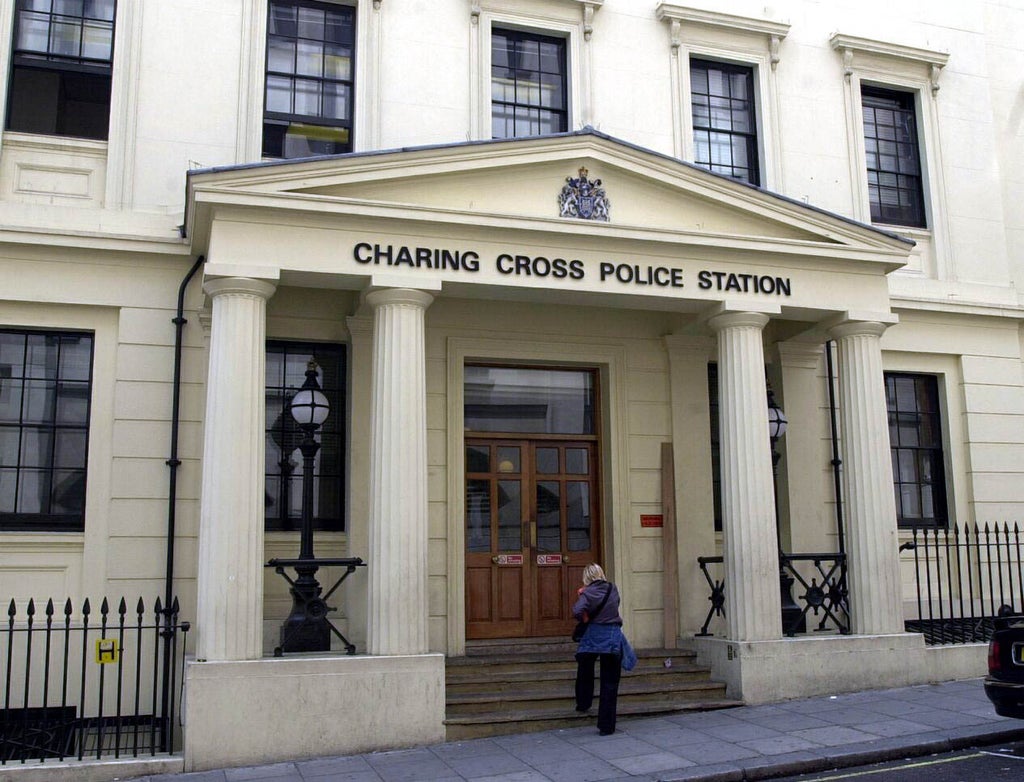
A senior Metropolitan Police officer has vowed to “root out” people who do not belong in the force, as he confirmed it had accepted multiple recommendations made by a watchdog following a probe into inappropriate conduct.
Deputy Assistant Commissioner Bas Javid said the Independent Office for Police Conduct (IOPC) recommendations will be used to “drive forward lasting change” in a bid to help improve the public’s confidence in the force.
It follows the publication earlier this year of racist, sexist and homophobic messages exchanged by police officers, with the IOPC finding the highly offensive language was dismissed as “banter”.
Details of messages from WhatsApp groups and a Facebook chat group including multiple references to rape, violence against women, racist and homophobic abuse were unveiled by the watchdog in February.
The IOPC took the unusual step of publishing the messages in full – despite the fact that much of the content is too offensive to print in mainstream news coverage – as it detailed the “disgraceful” behaviour of Metropolitan Police officers based in a now disbanded Westminster team between 2016 and 2018.
The messages were uncovered as part of nine linked investigations into officers based in Westminster, mostly at Charing Cross police station, that began in March 2018 after allegations that an officer had sex with a drunk person at a police station that were later found unproven.
On Thursday, the Met confirmed it had accepted 15 recommendations from the IOPC.
The watchdog said the force had agreed to publicly commit to a position of zero-tolerance on racism, misogyny, bullying and harassment, as well as making a public commitment to being an anti-racist organisation.
For the Met we believe it is an important step on the road to rebuilding public trust and confidence in the force
IOPC regional director Sal Naseem said: “We welcome the Met’s full acceptance of our recommendations and the programme of work it has announced to create a better working environment and improve the service for the communities it serves in London.
“In particular, we are pleased that the MPS has agreed to embed a zero-tolerance position on racism, misogyny, bullying and harassment within its policies and training, and will adopt that terminology.
“We felt this was vital to make it clear to all officers and staff that this behaviour will not be tolerated in any form. For the Met we believe it is an important step on the road to rebuilding public trust and confidence in the force, which is critical to maintaining the principle of policing by consent.”
Mr Javid said he, like many others, had been “disgusted to see officers involved in sharing deeply offensive and discriminatory messages”, branding their behaviour “unacceptable”.
He admitted that, during the process of getting rid of those who “don’t belong” in the force, there will likely be “more cases where officers and staff fail to uphold our expectations of them”.
We are determined to root out people who don't share our values and don't belong in the Met
He said: “I know many of my colleagues across policing also felt ashamed and disappointed. We are determined to root out people who don’t share our values and don’t belong in the Met. As we do this, unfortunately, we will continue to see more cases where officers and staff fail to uphold our expectations of them.
“While the team involved in this case was disbanded a number of years before the report was published, and the IOPC has recognised that we have already taken steps to improve our culture and standards, it’s clear we still have a large amount of work to do.
“The recommendations are wide ranging and we will use them, along with our existing rebuilding trust plan and our strategy for inclusion, diversity and engagement, to drive forward lasting change that will help improve the public’s confidence in the Metropolitan Police Service.”
The actions of 14 officers were investigated by IOPC, which concluded two had a case to answer for gross misconduct.
Of those two, one was dismissed and the other would have been dismissed had they not already resigned, the Met said.
Allegations of misconduct were proven against two officers, with one receiving a written warning and one receiving no further action as they had already demonstrated performance improvements, the force said.
Misconduct was not proven against two other officers, while two were subject to unsatisfactory performance procedures, said Scotland Yard.
Two officers were subjected to reflective practice to improve their performance and the investigation found no case to answer for the remaining four officers, the Met added.







